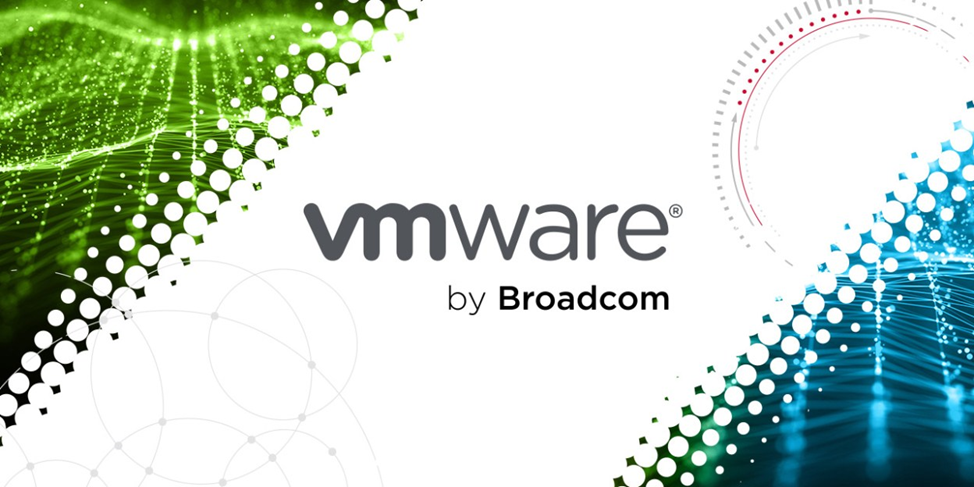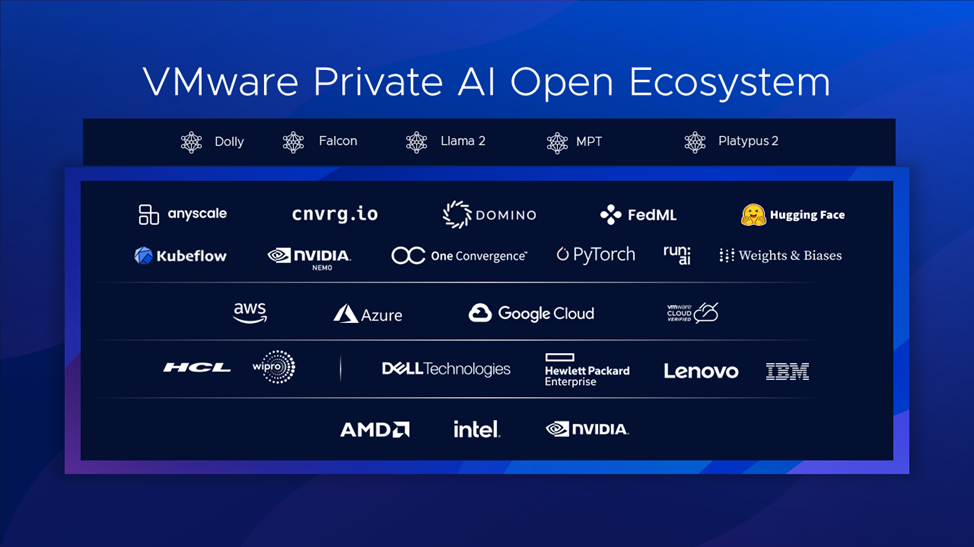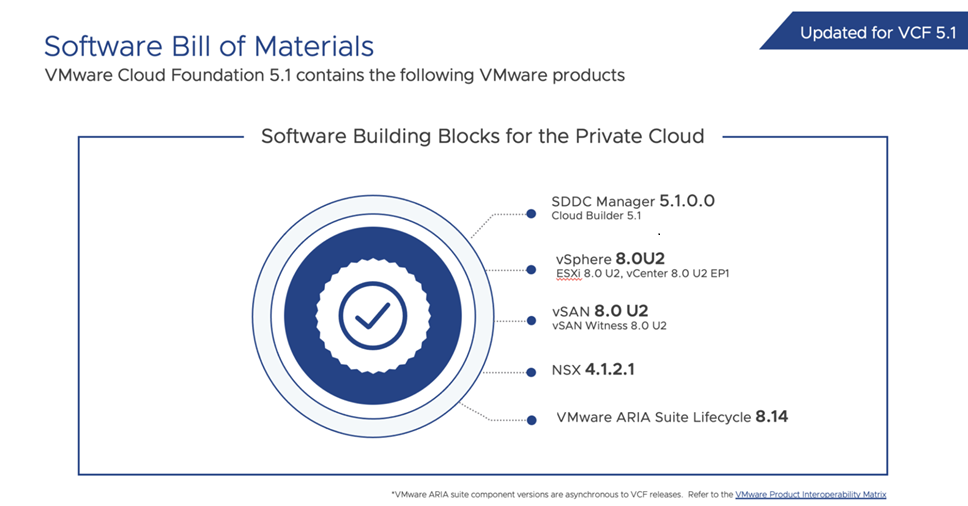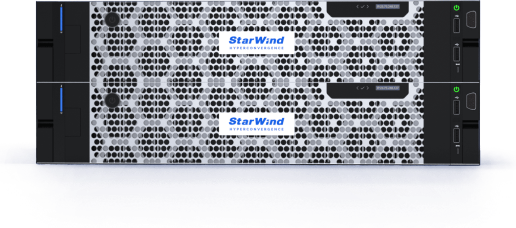In May 2022, Broadcom announced the acquisition of VMware for $61 billion, marking a new milestone in the development of the leading virtualization vendor.
This acquisition was the second most expensive in 2022 – an even higher price was offered only for the gaming giant Activision Blizzard, which was acquired by Microsoft Corporation for $68.7 billion. According to the agreement, VMware shareholders received a premium of about 49% compared to the price by the end of trade on May 22nd, when reports of negotiations and a possible deal first began to emerge.
In November 2023, it was announced that Broadcom had completed its acquisition of VMware and had fully integrated the vendor’s solutions into its portfolio. At the time, Broadcom said it planned to grow VMware’s customer base of more than 300,000 users.

At the same time, it was announced that in the future, there will be a transition to solely subscription licensing, which will gradually occur over the next few years. In view of this, many analysts predicted that VMware’s revenue growth could slow down in the short term but increase in the long term.
Tom Krause, president of Broadcom Software Group, and Hock Tan (CEO of Broadcom) said that the company will continue to invest on an ongoing basis in VMware core infrastructure products, naming vSphere, vSAN, vRealize and NSX as priorities.
When Dell acquired VMware, it led to a significant increase in profits, so it seems that Broadcom will reap the same benefits. However, the market trends are now different, specifically AI solutions based on public and private Large Language Models (LLMs). Therefore, VMware has been making a lot of innovations in the field of Private AI lately, which was the main topic of the last Explore 2023 conference.

Recently, Krish Prasad, who holds the position of Senior Vice President and General Manager in the VMware Cloud Foundation Division, spoke about how the VMware product line will change. The main news is that understanding licensing will become much easier, which is what customers have been waiting for so long. And some things will become 2 times cheaper!
The main new points here are the following:
- From now on, only two main standard offerings will be available: vSphere Foundation and VMware Cloud Foundation (VCF).
- Gradually (as promised) sales of perpetual licenses and Support and Subscription (SnS) subscriptions will be discontinued. It will also not be possible to extend such SnS contracts (but the current ones will continue to be valid). At the same time, customers who have already purchased perpetual licenses and support contracts will be offered a trade-in program, which will allow them to receive a subscription to products at a corresponding discount.
- There will be a Bring-your-own-subscription license (BYOL) licensing model, which ensures the portability of on-premium licenses to hybrid clouds verified by VMware and running on the VMware Cloud Foundation.
Available vSphere editions
vSphere Foundation
The main version of vSphere used from now on will be “vSphere Foundation”.
So, the new VMware vSphere Foundation platform offers a more simplified enterprise application experience for midsize and small customers. The solution integrates vSphere with intelligent operations management solutions, delivering better performance, availability and efficiency with greater process visibility and insight.
Also starting in December of this year, vSphere customers will receive Aria Operations (formerly known as vRealize Operations) and Aria Operations for Logs (formerly known as vRealize Log Insight) with the vSphere solution (which also includes vCenter and Tanzu Kubernetes Grid products).
The vSphere Foundation solution will now be available for purchase via subscription in one of three editions:
- vSphere Essentials Plus Kit
- vSphere Standard
- vSphere Foundation
The first two editions are proposals for small and medium-sized businesses, but the third is a full-fledged vSphere platform, which can be expanded using add-ons.
Let’s see what the Essentials Plus Kit (VVEP) includes:
- vSphere Essentials Plus (licenses for up to 96 cores in total – 3 ESXi hosts, up to 6 physical CPUs on each)
- vCenter Server Essentials
- Production Support
As add-ons, you may buy the following components for VVEP:
- VMware Cloud Disaster Recovery (VCDR) – licensed per TiB and Protected VM
- VMware Ransomware Recovery (RWR) – licensed per Protected VM
- VMware Site Recovery (SRM) – licensed per pack of 25 VMs
The vSphere Standard edition (VVS) will contain the following components:
- vSphere Standard
- vCenter Server Standard
- Production Support
As addons you may buy the following components for VVEP:
- VMware Cloud Disaster Recovery (VCDR) – licensed per TiB and Protected VM
- VMware Ransomware Recovery (RWR) – licensed per Protected VM
- VMware Site Recovery (SRM) – licensed per pack of 25 VMs
Well, and most importantly – the vSphere Foundation:
- vSphere Enterprise Plus
- vCenter Server Standard
- Tanzu Kubernetes Grid (with TKG runtime)
- vSAN Enterprise licensed for up to 100 GiB of storage per core licensed as free trial
- Aria Suite Standard
- Production Support
- Product expansion using addons
The most interesting thing is, of course, add-ons that not only expand the capabilities of the platform, but also turn it into a complete solution for creating virtual datacenters of any scale.
Here are the addons that will be available for purchase to vSphere Foundation users:
- VMware vSAN Enterprise (available for both VCF and vSphere Foundation, minimum purchase is 8TiB per CPU Socket)
- VMware Ransomware Recovery (available for both VCF and vSphere Foundation) – licensed per VM
- VMware Cloud Disaster Recovery(available for both VCF and vSphere Foundation) – licensed per VM
- VMware Advanced Load Balancer (formerly Avi) – licensed per service unit
- Tanzu Intelligence – the following products will be available here: Tanzu Guardrails (Advanced or Enterprise), Aria Operations for Apps (previously called Tanzu Observability, and even earlier Wavefront), Tanzu Application Catalog, Tanzu CloudHealth Enterprise and Tanzu Insights
- Tanzu Mission Control (both SaaS solution and self-managed)
- Tanzu Application Platform (Spring runtime)
Also, an even larger number of add-ons will be available in the future, in particular, products from the VMware Private AI family and other solutions.
VMware Cloud Foundation (VCF)
Existing VCF or large vSphere Foundation customers can migrate to the new VMware Cloud Foundation, which can now be considered a complete solution for managing private and hybrid cloud stacks.

VMware Cloud Foundation is a flagship Enterprise hybrid cloud solution that enables customers to securely, reliably and cost-effectively manage mission-critical and modern applications. To enable more customers to benefit from the solution, subscription prices have been halved and higher levels of support have been added, including enhanced support for initial solution activation and lifecycle management.
In addition, the following extensions that are not offered to vSphere Foundation users will be available only to VCF users:
- VMware Firewall, also known as NSX Distributed Firewall
- VMware Firewall with Advanced Threat Protection (ATP)
vSphere Foundation will now only include NSX for Network Virtualization (overlay), without micro-segmentation or distributed firewalling (DFW) capabilities, which will be available only to VCF users. In other words, customers who want the capabilities of DFW NSX (which is an add-on to VMware Firewall) first need a VCF subscription that includes NSX.
Please note that currently all new license packages are provided in “disconnected” mode (that is, without connection to VMware Cloud), but this situation will be fixed soon.
There are 2 important points here:
- VMware Cloud on AWS, VMware Cloud on Azure and others will also be included in the VCF licensing infrastructure.
- VMware vSAN Enterprise will now be licensed per TiB (equivalent to terabytes) per specified number of ESXi host cores.
Also, VMware will provide the following VMware Validated Solutions (VVS) with the VCF offering:
- Private Cloud Automation for VCF
- Intelligent Operations Management for VCF
- Intelligent Logging and Analytics for VCF
- Cloud-Based Network Visibility for VCF
- Developer Ready Infrastructure for VCF
- Cross Cloud Mobility for VCF
- Cloud-Based Workload Protection for VCF
- Cloud-Based Ransomware Recovery for VCF
- Site Protection and Disaster Recovery for VCF
- Advanced Load Balancing for VCF
VMware Cloud on X
In this infrastructure, all products and add-ons offered within the VMware Cloud Foundation (and even more) will be available in the cloud of the client’s choice.
If the client in the future uses a cloud or hybrid VMware Cloud environment on AWS, Azure or another VMware Cloud platform, then the Bring-your-own-subscription license (BYOL) program will be available for clients. This will allow the use of existing premium VCF licenses for public cloud subscription.
Conclusion
Broadcom, having completed the acquisition of VMware, decided to take responsible steps to change its licensing policy. In the short term, this may somewhat weaken revenue growth (since the subscription model provides less income now than 1-3 year contracts). However, in the long term, this is a more modern model, to which many SaaS products in the Enterprise segment have switched, to which, primarily focused on VMware products. A big advantage for customers is a two-fold reduction in the cost of a subscription to VMware Cloud Foundation, as well as a general simplification of the licensing scheme for products, of which VMware has a great variety – and it is not always easy for users to figure out what and how they need to buy.
Of course, there will be some difficulties when converting existing perpetual licenses, especially for customers who are not used to using paid support (SnS) in the long term. However, Broadcom will offer flexible transition terms for such users, trying not to greatly impact procurement budgets.




